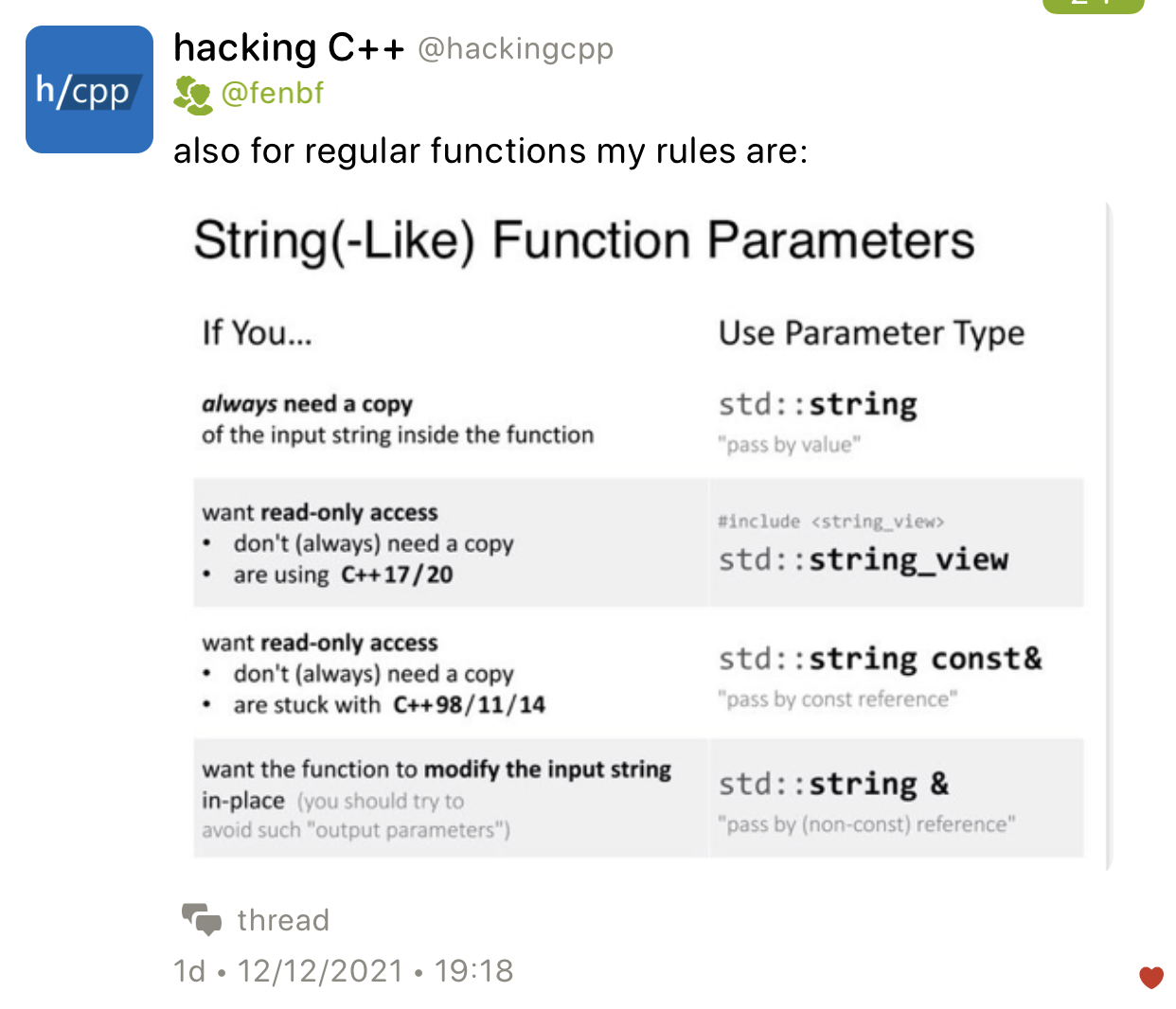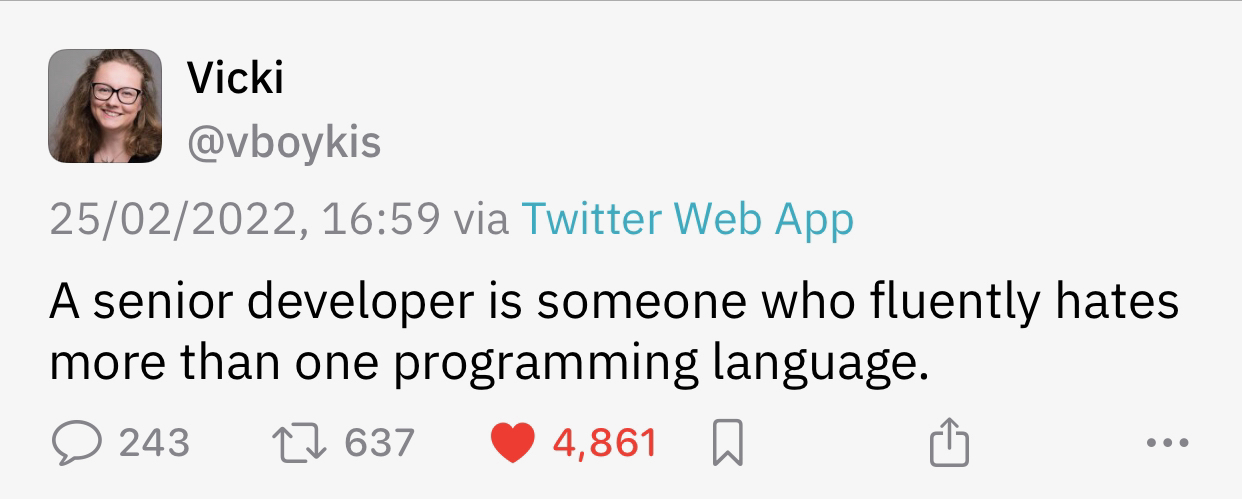Meeting 145 (17 March 2022)
Media
Video
Podcast
Powered by RedCircle
War
Discussing C++ while a war in Europe is raging feels surreal. I stand with people of Ukraine who are experiencing this unspeakable tragedy. I hope they prevail, and I hope Russian war criminals are brought to justice.
P2300 is headed to C++26
P2300 std::execution is headed to C++26. The latest poll with the question “Advance P2300R5 to electronic polling to send it to LWG for C++26” resulted in strong consensus with just a single neutral vote and no votes against. You probably remember that on its way to C++23 the paper was met with strong objections from quite a few people. Maybe the latest poll reflects the fact that C++26 is a loo-o-o-ng way away and the paper can be ready in time. Or maybe not all committee members were notified of the poll, which I guess is one way of solving the problem.
Modern C++ Course from Bonn U
There is a decent Modern C++ course from Bonn University on YouTube, check it out.
Mold 1.1.1 released
Rui Ueyama released version 1.1.1 of his new fast linker mold. This version adds new LTO options for lld compatibility and reduces memory usage by ~6%, consuming less memory than GNU Gold or Clang lld.
String-like parameter cheatsheet

When using the pass-by-value + move idiom in constructors, be extra careful not to use the passed parameter after it has been moved-from.
Specializations of variable templates can have different type
Eric Niebler tweets:
Specializations of a variable template can have different types. Huh. #TIL #CPP
Hana Dusíková replies:
It’s exactly [the] same as specialization of [a] template based on type

Secure coding practices
Amir Kirsh posted an article on the IncrediBuild blog called Top 10 secure C++ coding practices. In it he gives an overview of what security is and how a C++ programmer can make their code more robust to avoid vulnerabilities. He starts with the following:
Understand that there are no safety nets provided by the compiler or runtime while coding in C++. C++ compiler generates the code the programmer asked it to generate, without adding any safety checks. While coding in C# or Java, for example, incorrect array access would lead to a runtime exception, whereas in C++ this leads to incorrect memory access or memory corruption in case of writing. Incorrect or sloppy coding can lead to overflows (stack, heap, and buffer overflows) which can easily be used for an attack.
Some of the advice from the author:
- Don’t misuse APIs. Don’t rely on undocumented behaviour. Don’t use APIs that are established to be vulnerable.
- Validate input.
- Take advantage of type safety. Don’t intentionally bypass type checking.
- Be careful of arithmetic overflows and underflows. (Ah yes, the infamous
size_t) - Handle exceptions and errors carefully.
- Don’t leak sensitive information including error codes, stack traces, user IDs etc.
- Initialize variables.
- Security by obscurity is no security.
- Don’t implement your own cryptography.
- Be careful with random numbers. Use the new C++11 random generators (but not like that – see P0205).
- Use C++ secure coding standard to complement your C++ coding standard, like SEI Cert C++.
- Use the right tools to detect security issues: static code analysers, sanitizers.
The related Reddit thread has an interesting discussion on using at() vs. []. I didn’t know that in some cases the compiler can optimize away bounds checks in at(). Of course, a better solution is to use range-for loops or even better, ranges and algorithms.
An interesting clang-tidy bug
Lesley Lai tweeted:

If we applied the fix, the second if wouldn’t compile because ec was declared in the first if init statement.
Vicki Boykis (@vboykis) tweets:

TerraTech (@gaya_tech) on embedded programming:
